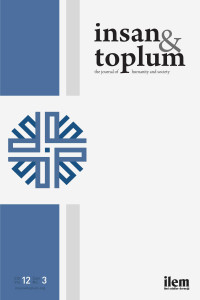Identity and Perceptions of Procedural Justice in the Courts in Turkey: Ethnic and Political Factors
Hukuk makamlarının halkla etkileşimleri sırasında gerçekleşen süreçlerin adil olup olmaması üzerinden tanımlanan prosedürel adalet, kişilerin bu makamlarla ilgili genel değerlendirmelerinin önemli parametrelerinden bir tanesidir. Bu makale, 1.804 kişiye uygulanmış ve Türkiye nüfusunu temsil gücü olan bir ankete dayanarak, kişilerin etnik köken ve siyasi kazanan/kaybeden statüsü gibi sosyo-politik kimliklerinin, Türkiye'deki mahkemelere dair prosedürel adalet algılarını nasıl etkilediğini incelemiştir. Çok değişkenli regresyon analizi, Kürtlerin Türklere göre ve siyasi kaybedenlerin siyasi kazananlara göre Türkiye'deki mahkemelerin prosedürel adalet açısından adil olmadığını düşünme olasılıklarının daha yüksek olduğunu ortaya koymuştur. Dahası, yapılan analizler etnik kimliklerine bir ek olarak iktidardaki partiye oy vermenin veya Alevi olmanın, Kürtlerin mahkemelerdeki prosedürel adalet algısı üzerinde bir etkisi olmadığını göstermiştir. Bu nedenle, bu makale etnik köken ve siyasi kazanan olmanın kişilerin Türkiye'deki mahkemelere dair prosedürel adalet algılarını belirleyen iki önemli faktör olduğunu ortaya çıkarmıştır. Bu bulgular ışığında, Kürtlerin ve siyasi kaybedenlerin devletle özdeşleşme olasılıklarının daha düşük olması sebebiyle, Türkiye'deki mahkemelerdeki prosedürel adalet konusunda daha olumsuz algılara sahip oldukları sonucuna varılmıştır.
Identity and Perceptions of Procedural Justice in the Courts in Turkey: Ethnic and Political Factors
Procedural justice, which is about the fairness of procedures that the legal authorities use in their interactions with the public, is an important determinant of people’s general evaluations of these authorities. Based on a nationally representative survey with 1,804 people, this article investigates how socio-political identities such as ethnicity and one’s status as a political winner or loser affect people’s perceptions of procedural justice in the courts in Turkey. Multivariate regression analysis revealed that Kurds and political losers are more likely than Turks and political winners, respectively, to think that the courts in Turkey are not procedurally just. Furthermore, we found that voting for the incumbent party or being an Alevi does not have an effect on Kurds’ perceptions of procedural justice in the courts. We, therefore, argue that ethnicity and being a political winner are two important identity factors that determine people’s perceptions of procedural justice in the courts in Turkey. We concluded that because Kurds and political losers are less likely to identify with the state, they have more negative perceptions of procedural justice in the courts in Turkey.
___
- Açikel, F., & Ateş, K. (2011). Ambivalent citizens: The Alevi as the ‘authentic self” and the ‘stigmatized other’ of Turkish nationalism. European Societies, 13(5), 713-733. doi: 10.1080/14616696.2011.597868
- Anderson, C. J., & LoTempio, A.J. (2002). Winning, losing, and political trust in America. British Journal of Political Science 32(2), 335-351. doi:10.1017/S0007123402000133
- Antrobus, E., Bradford, B., Murphy, K., & Sargeant, E. (2015). Community norms, procedural justice, and the public’s perceptions of police legitimacy. Journal of Contemporary Criminal Justice, 31(2), 151-170. doi: 10.1177/1043986214568840
- Askvik, S., Jamil, I., & Dhakal, T.N. (2011). Citizens’ trust in public and political institutions in Nepal. International Political Science Review, 32(4), 417-437. doi: 10.1177/0192512110377437
